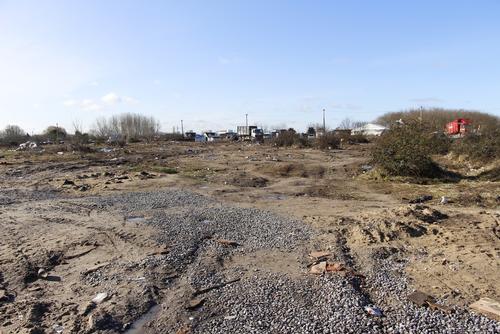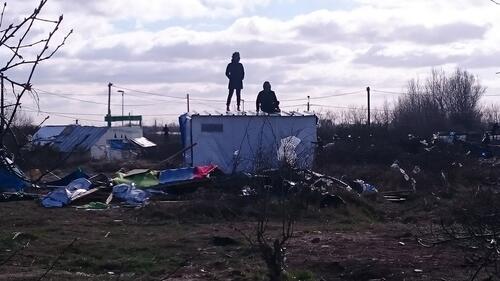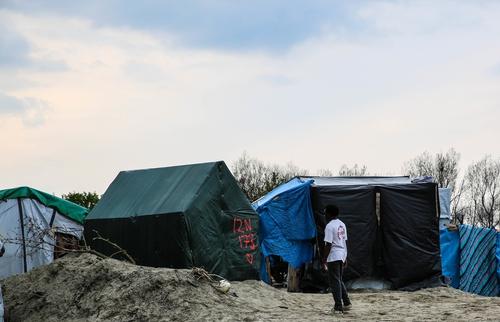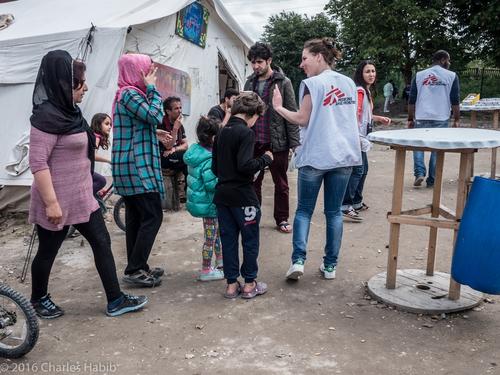Despite the Government’s desire to reduce the numbers of refugees living in the slum at Calais, more than 4,000 refugees continue to live there. MSF maintains a medical presence and follows the evolution of the situation.
In the medium term, the authorities want the refugees to move in to the temporary structures they’ve provided. They assert that individuals wishing to remain in Calais should move in to the ‘Temporary Reception Centre’ (the white container camp) whilst families and children can stay in the Jules Ferry Centre. Others can move to Reception Centres elsewhere in France, where they are then able to claim asylum.
The destruction of the southern part of the slum started on 29 February and was almost completed by 16 March. There were cases of violence during the evacuation and MSF constructed a small medical clinic in the southern part of the camp, in order to provide medical care to anyone who was wounded. The French authorities now want to move on to the northern part of the camp which would leave 75% of the refugee population without anywhere to go.
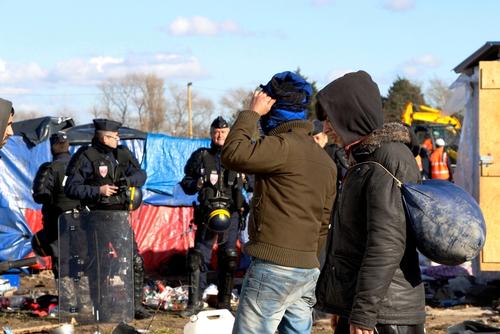
The demolitions have already made the living conditions in the northern part of the camp more crowded, resulting in heightened tension and an increased lack of privacy for the people living there. MSF has therefore had to build a new medical clinic in the camp. It constitutes two wooden shelters where refugees can access nursing care, psychological care and receive medical certificates if they’ve been subjected to violence, usually from the local police forces. MSF will continue to testify for the cases of violence committed against the refugees and will expand its mental health activities in the camp, particularly for isolated minors.
More generally, the situation for the 4,000 refugees remaining at the camp is volatile and has been criticised by the organisations working there. There are only 1,900 available places for people in the Government’s ‘Temporary Reception Centre’ at Calais and they are already full. The reality is that, following the evacuations, many refugees have left Calais to go to a number of much smaller refugee camps across Northern France. Some are made up of a few dozen refugees whilst others are home to hundreds of people. MSF is following the movements of refugees to these smaller sites and will continue to provide medical help to those who need it.
On 1 March MSF passed over the running of our main clinic to the local French health service. Only one small MSF clinic remains in the camp through which MSF will continue to be present in the Jungle. We will continue to provide psychotherapy and physiotherapy services. MSF’s logistical activities were still substantial as of a few weeks ago. We’ve installed tens of toilets, running water stations and have been overseeing rubbish collection as well as the construction of more than 200 shelters. However, we will now begin to phase out these responsibilities and hand them over to other organisations at the site.
